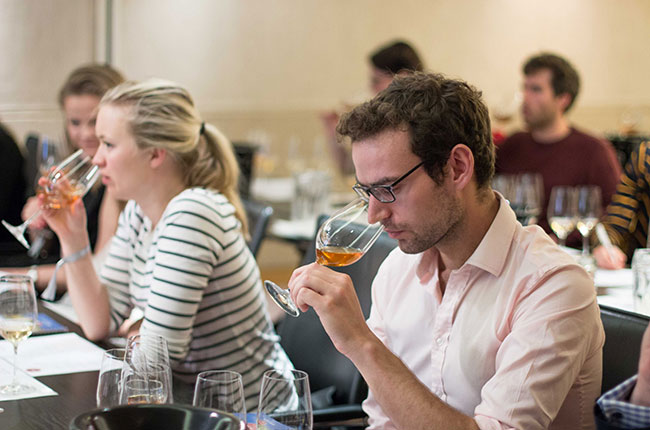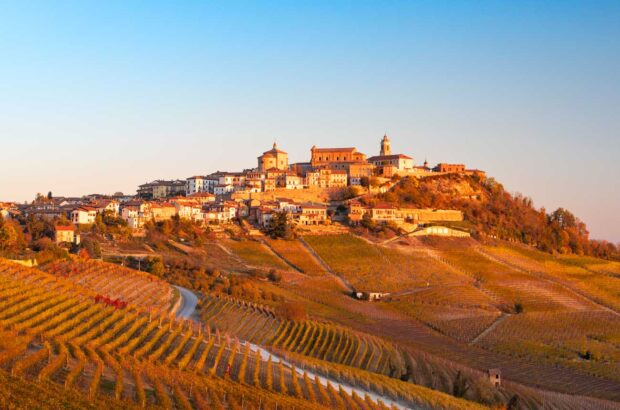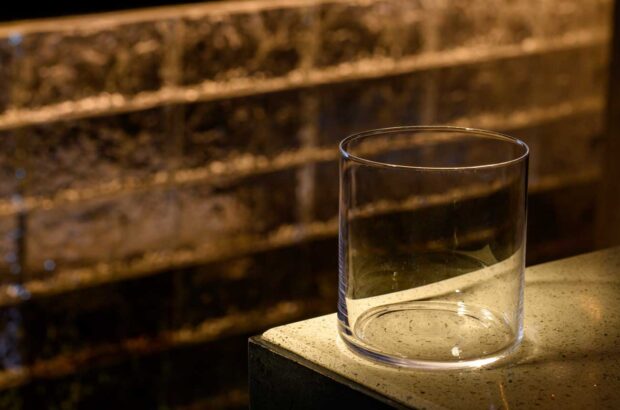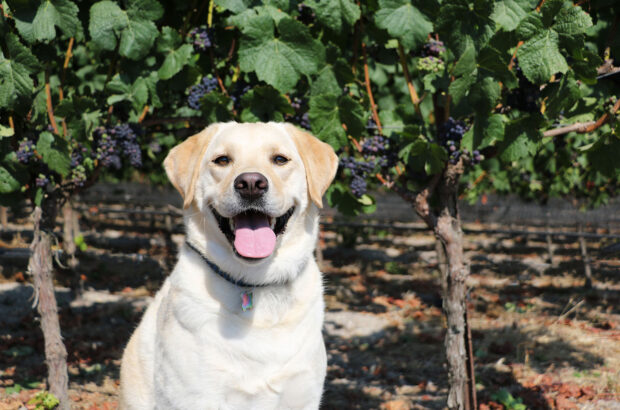Andrew Jefford asks if the two are incompatible.
You’ve been to RAW (whose 2018 London event was in March this year and whose Berlin event will take place at the end of this week) and the Real Wine Fair (taking a break in 2018 but back in 2019) — so where next for zeitgeist drinkers? Maybe London’s Mindfulness Drinking Festival. There were two of these last year, and the next one is scheduled for July 28th, at London’s Spitalfields Market.
It’s run by Club Soda, a ‘Mindful Drinking Movement’, and the Festival features non-alcoholic drinks. Indeed a quick look at Club Soda’s website suggests that its principal aim is to help young people cut back or eliminate alcohol consumption altogether: “Mindful Drinking is our 8-week online course helping you achieve your drinking goals, whether you want to cut down, stop for a bit, or quit alcohol for good … Many Club Soda members are celebrating weeks, months and even years alcohol-free.” The goal of the festival, say its founders, is to create “a world where nobody has to feel out of place if they’re not drinking”. (Not drinking alcohol, that is.)
Helping avert alcohol dependency is a laudable aim, and of course no one should ever feel obliged to drink alcohol when they don’t want to. I enjoy alcohol-free days as well as wine-filled days. Where, though, is the mindfulness in all of this? Does mindfulness have to be non-alcoholic? Can’t wine drinkers be mindful, too? What is mindfulness, anyway?
As a life strategy and self-help technique, it owes much to Professor Jon Kabat-Zinn’s Mindfulness-Based Stress Reduction (MBSR) programme, created at the University of Massachusetts Medical Centre in the late 1970s. This was a secular, science-based programme aimed at combating the negative health outcomes of stress. The practice of mediation lay at its core; Kabat-Zinn himself had studied meditation with Buddhist teachers.
Any discussion of the term ‘mindfulness’ must draw on Buddhist scholarship and teachings – and indeed address translation issues. The original Pali term ‘sati’ and Sanskrit term ‘smrti’ imply other notions, too, such as ‘attentiveness’, ‘awareness’, ‘recollection’ and ‘retention’. Buddhists will know that ‘Right Mindfulness’ is one element of the Noble Eightfold Path – a purifying of thought based on the elimination of bodily attachments, the acceptance that feelings lie at the origin of suffering, and the understanding that thought itself is impermanent and that all phenomena are without substantial existence.
Committed Buddhist practitioners, moreover, have to follow the Five Precepts, one of which is ‘no taking of intoxicants’. That doesn’t, of course, mean that every Buddhist is a non-drinker. Indeed one of the foremost twentieth-century teachers of Tibetan Buddhist traditions in the west, Chögyam Trungpa (1939-1987), was a former monk whose heavy drinking led to his early death, but whose translations and teachings were nonetheless revered, even those given when he was palpably alcohol-affected. “Trungpa walked in tipsy and sat on the edge of the altar platform with his feet dangling,” remembered one student. “But he delivered a crystal-clear talk, which some felt had a quality … of not only being about the dharma but being itself the dharma.” MBSR, meanwhile, has often been used in conjunction with treatments for substance-use disorders including alcoholism, but does not in itself demand abstention.
I have, all too intermittently, practiced meditation since first being taught ‘transcendental meditation’ techniques in 1974, and it’s beyond doubt that meditation itself is always best accomplished prior to any consumption of alcohol.
I would simply point out that there are, in fact, many points of similarity between the general practice of mindfulness and that of wine tasting. You can indeed be a mindful wine taster; wine tasting at its most subtle and rewarding is a ‘mindful’ activity par excellence. Here’s what I mean.
1. A significant theme – indeed some would say the principal theme – of mindfulness is being in the present: the only authentic form of being, since the past no longer exists and the future is conjectural. It is, though, a state which the complexity of our lives makes difficult or unattainable. Our entanglements with the failures and regrets of the past and the comprehensive uncertainties of the future are a major source of stress to us. Complete and concentrated focus on a single object is one way of drawing us into the present and away from the empty distractions of past and future – and that’s exactly what happens when we give all our attention, both sensual and intellectual, to a glass of wine. The wine is a candle flame, compelling and illuminating our consciousness as we engage with it and draw it into ourselves
2. Mindfulness practice, particularly in its early stages, stresses that meditation begins elsewhere, and doesn’t mean forced routines of leg-crossing and eye-shutting. One of Kabat Zinn’s first exercises in his MBSR programme is a ‘raisin meditation’. This involves taking a raisin, looking at it intently as if for the first time, observing its colours and feeling its textures, listening to it as you roll it close to your ear, smelling it, chewing it very slowly and thoroughly, swallowing it and feeling it descend your oesophagus and make its way to your stomach: mindful eating — but also a meditative experience. This sort of rhapsodic attention is exactly what marks wine tasters out from unthinking wine drinkers.
3. It is important in mindfulness practice to act rather than react, to maintain a non-judgemental awareness of the present moment. Once again, this might almost be a formula for the best sort of wine tasting: one that is alert to every possibility in the glass in front of you, one that is open to all of the wine’s overtures as it comes out of the glass to meet you. Bad wine tasting (like most, I taste badly sometimes) is that which comes at wines with prejudices and biaises, or which quickly dismisses aspects of a wine’s personality as faults or failures. This is not an argument, by the way, for critical surrender – but for the intimate knowing which follows active (rather than reactive) engagement with a wine.
4. One of the key benefits of mindfulness meditation is the dissolution of negative or strong emotion (for Buddhists, all strong emotion is a poison which defiles or obscures the mind). I admit that the alcohol in wine might be a handicap here, since one effect of alcohol is an unlocking of emotion. My own view, though, is that the alcohol in good wine or fine wine is so interwoven with the sense of place which that wine conveys as to induce a kind of universal compassion for the world and for nature itself, and that this is turn contextualises and lends perspective to the petty concerns which arouse negative or strong emotion. Wine would not do this to the same extent without its alcohol content.
5. Another benefit of mindfulness is that it brings self-awareness and fosters self-compassion: you come to realise how your emotions impact your behaviour, and you also learn to avoid the suffering of low self-worth or an overly judgmental view of self. It’s far-fetched to impute direct benefits of this sort to wine-tasting activities – but wine, used moderately, unquestionably softens human abrasiveness, and by tasting wine, too, you can come to learn a little more about the kind of person you are and where your cultural sympathies lie.
6. Mindfulness, finally, awakens joy through its non-judgemental cherishing of the very simplest pleasures in life, and brings serenity and clarity of mind through attentiveness to present being. While consuming too much wine might indeed destroy serenity and clarity of mind, my experience is that tasting wine attentively and consuming it moderately can indeed provoke feelings of serenity and far-sightedness: the key lies in gauging the right dose. And every wine taster is familiar with the joy that this activity brings. With a wine-taster’s ‘right mindfulness’, moreover, you will find just as much joy in tasting simple wines as complex fine wines.







